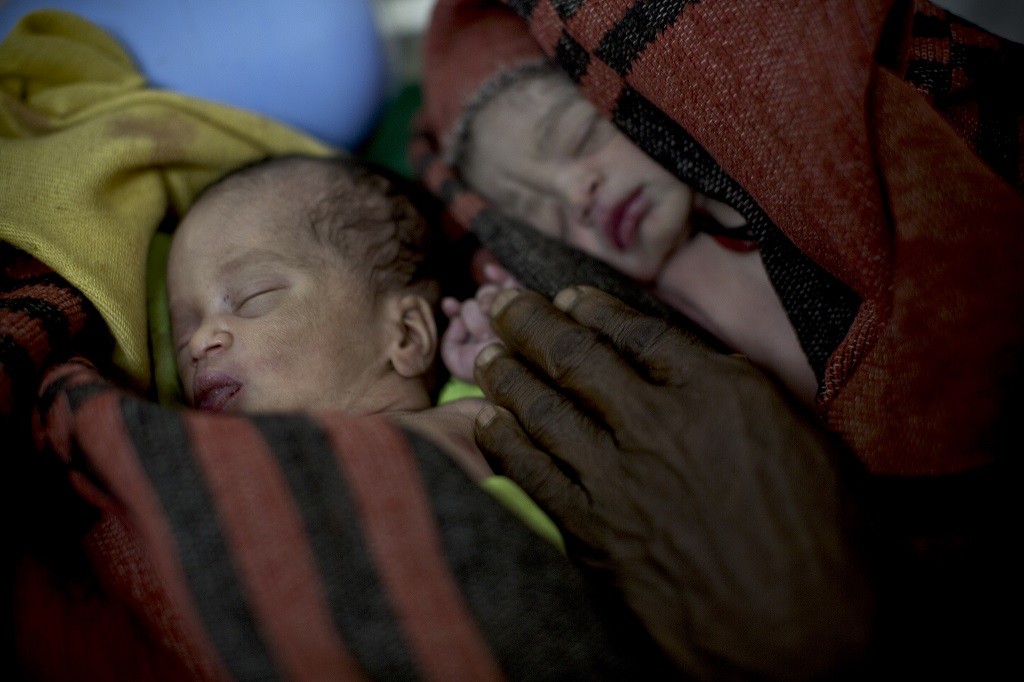
“The training I was given has really enabled me to serve the community better,” said Rahmete, a midwife who now confidently treats young children with possible serious bacterial infections in southwestern Ethiopia. […]
Read More…
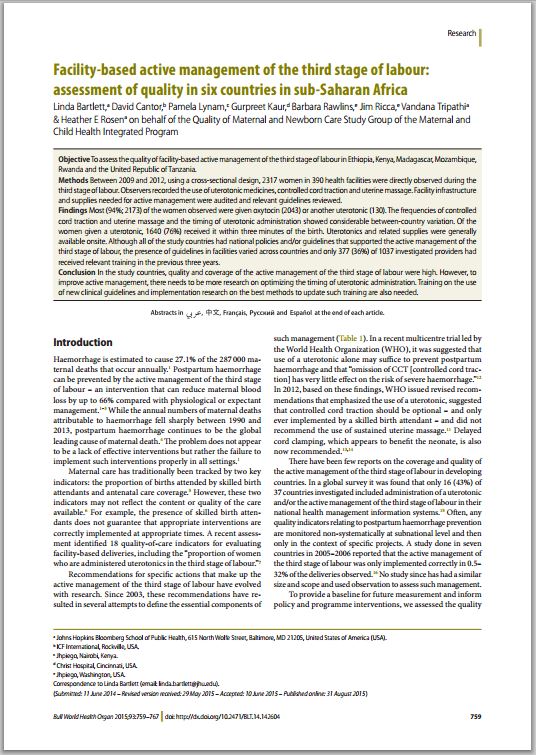
This MCSP co-authored World Health Organization bulletin assesses the quality of facility-based active management of the third stage of labor (AMTSL) in Ethiopia, Kenya, Madagascar, Mozambique, Rwanda and Tanzania. The authors found the quality and coverage of AMTSL were high. However, to improve active management, there needs to be more research on optimizing the timing of uterotonic administration. […]
Read More…
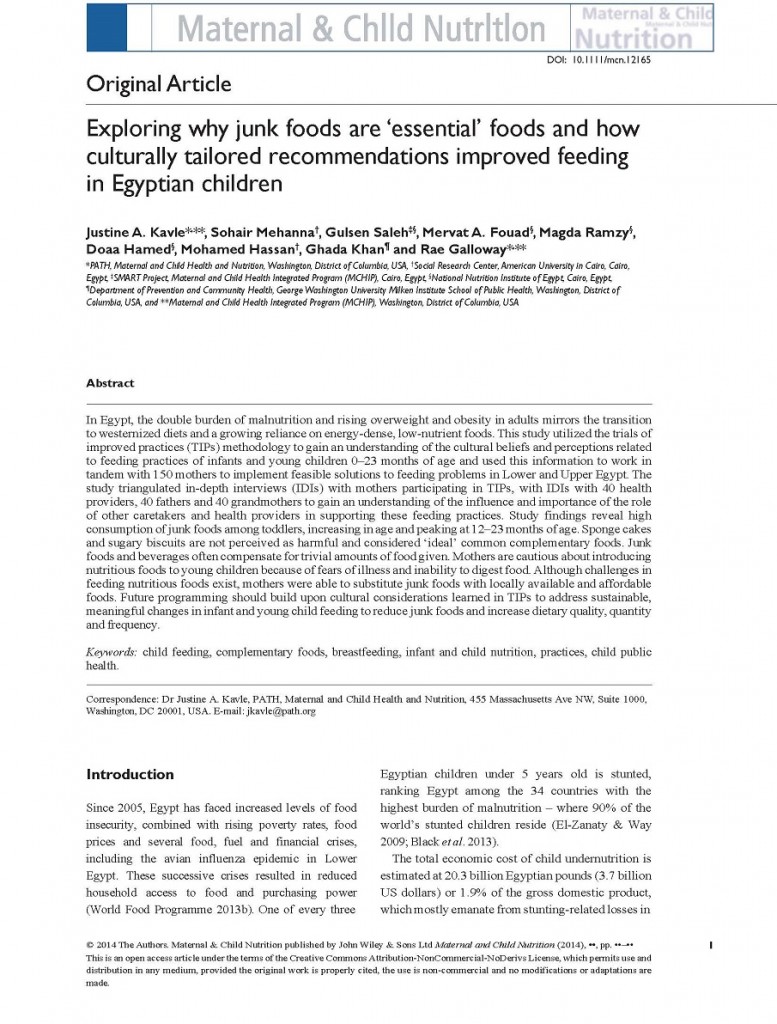
This open access, MCSP co-authored article in the journal Maternal & Child Nutrition focuses on Egypt, where the double burden of malnutrition and rising overweight and obesity in adults mirrors the transition to westernized diets and a growing reliance on energy-dense, low-nutrient foods. This study utilized the trials of improved practices (TIPs) methodology to gain an understanding of the […]
Read More…
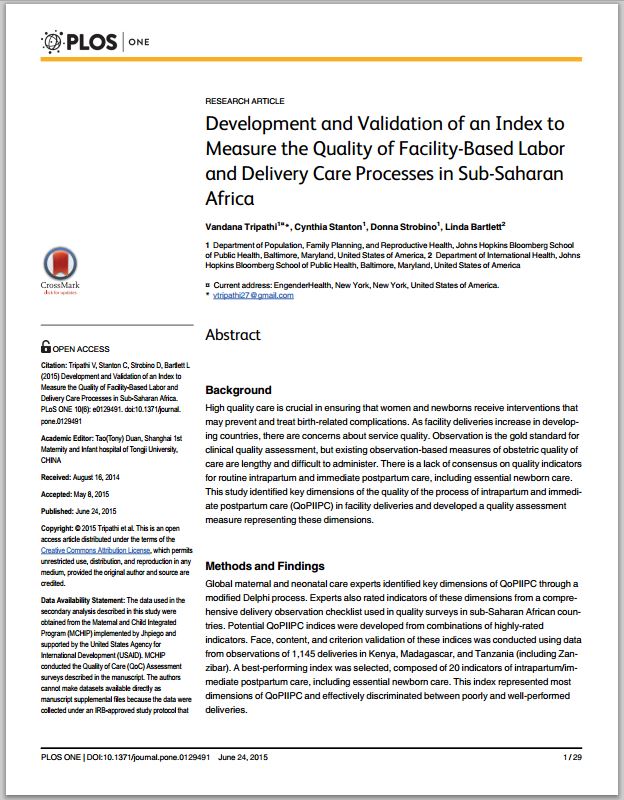
This open access, MCSP co-authored article in PLOS ONE examines intrapartum and immediate postpartum care in facility deliveries and explains a related quality assessment measure. […]
Read More…
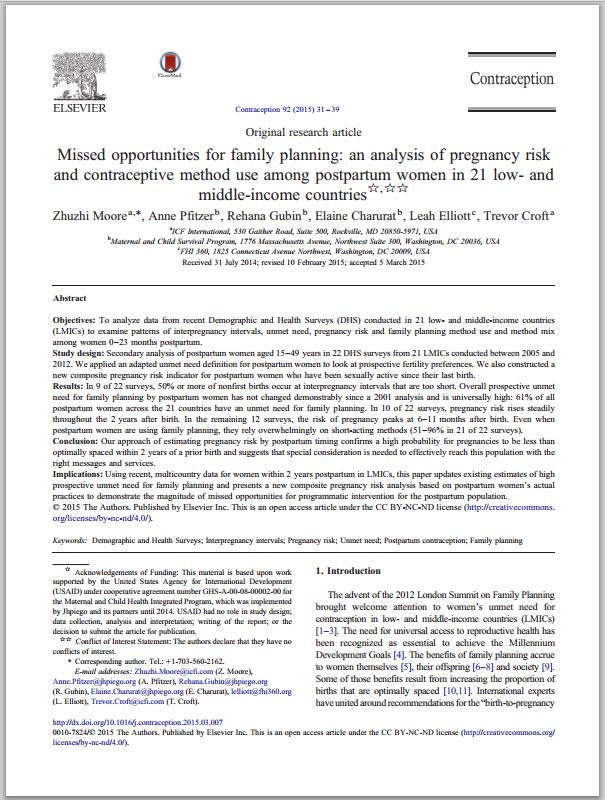
This open access, MCSP co-authored article in the journal Contraception analyzes data from recent Demographic and Health Surveys conducted in 21 low- and middle-income countries to examine patterns of interpregnancy intervals, unmet need, pregnancy risk, and family planning method use and method mix among women 0–23 months postpartum. The countries reviewed were: Bangladesh, Burkina Faso, […]
Read More…
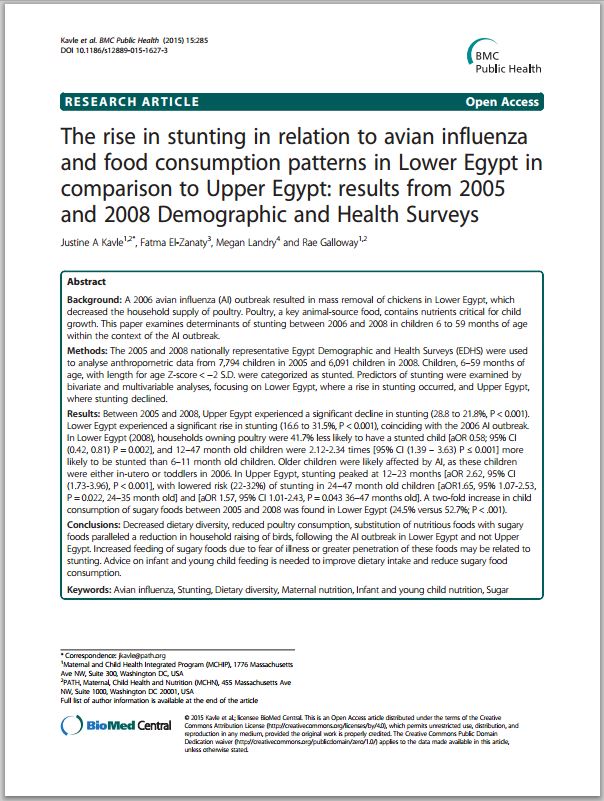
This open access article, co-authored by MCSP and published in BMC Public Health, examines determinants of stunting between 2006 and 2008 in children 6 to 59 months of age within the context of the avian influenza outbreak. […]
Read More…

This open access article, co-authored by MCSP staff and published in the journal BMC Health Services Research, highlights efforts to develop a methodology for estimating national coverage for uterotonic use immediately following birth. The methodology was then piloted in four countries: India (Jharkhand), Mozambique, Tanzania and Yemen. […]
Read More…
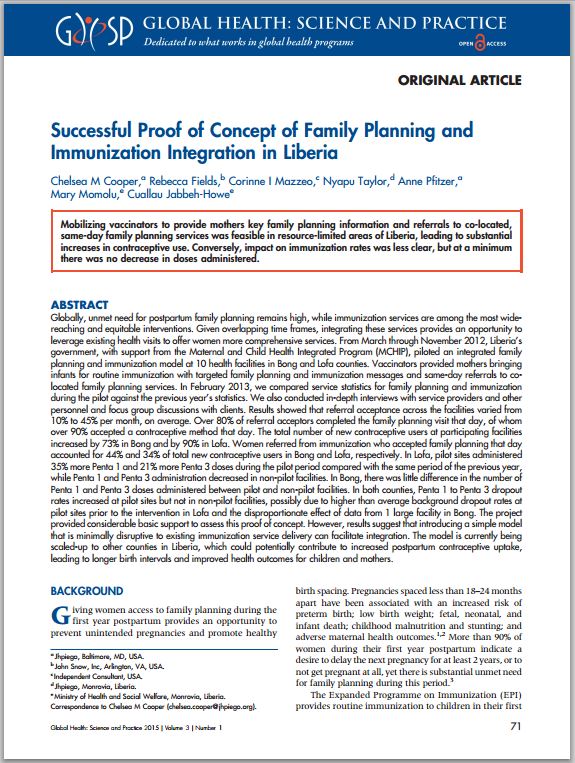
This MCSP co-authored, open access article in the journal Global Health: Science and Practice gives evidence that mobilizing vaccinators to provide mothers with key family planning information and referrals to co-located, same-day family planning services was feasible in resource-limited areas of Liberia. It details how these efforts led to substantial increases in contraceptive use. Conversely, […]
Read More…
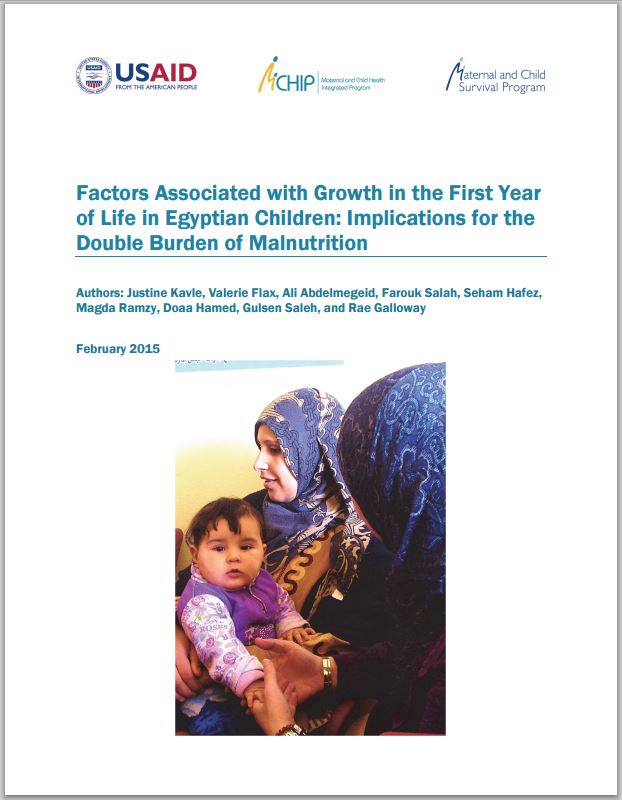
The primary objective of this study was to determine whether there were differences between Lower Egypt and Upper Egypt in growth patterns and factors related to growth. The secondary objective was to examine the relationship between weight and length to ascertain if weight loss in any two-month interval contributes to stunting at 12 months of […]
Read More…
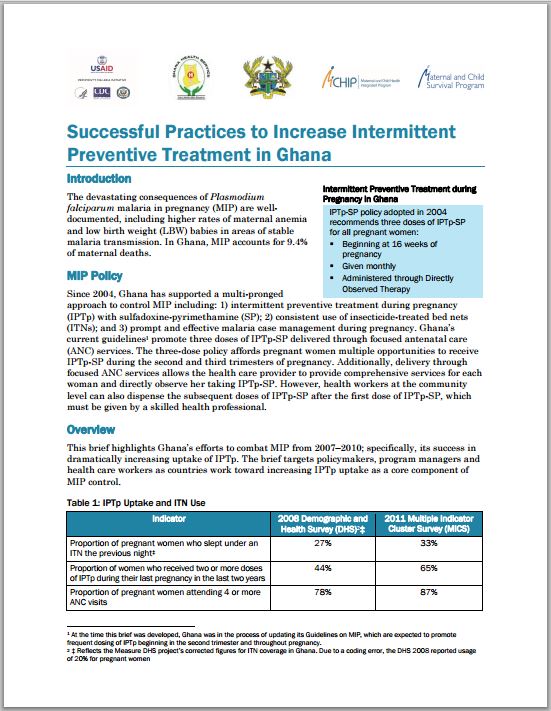
This brief highlights Ghana’s efforts to combat malaria in pregnancy (MIP) from 2007–2010, specifically its success in dramatically increasing uptake of intermittent preventive treatment (IPTp). The resource targets policymakers, program managers and health care workers as countries work toward increasing IPTp uptake as a core component of MIP control. […]
Read More…










